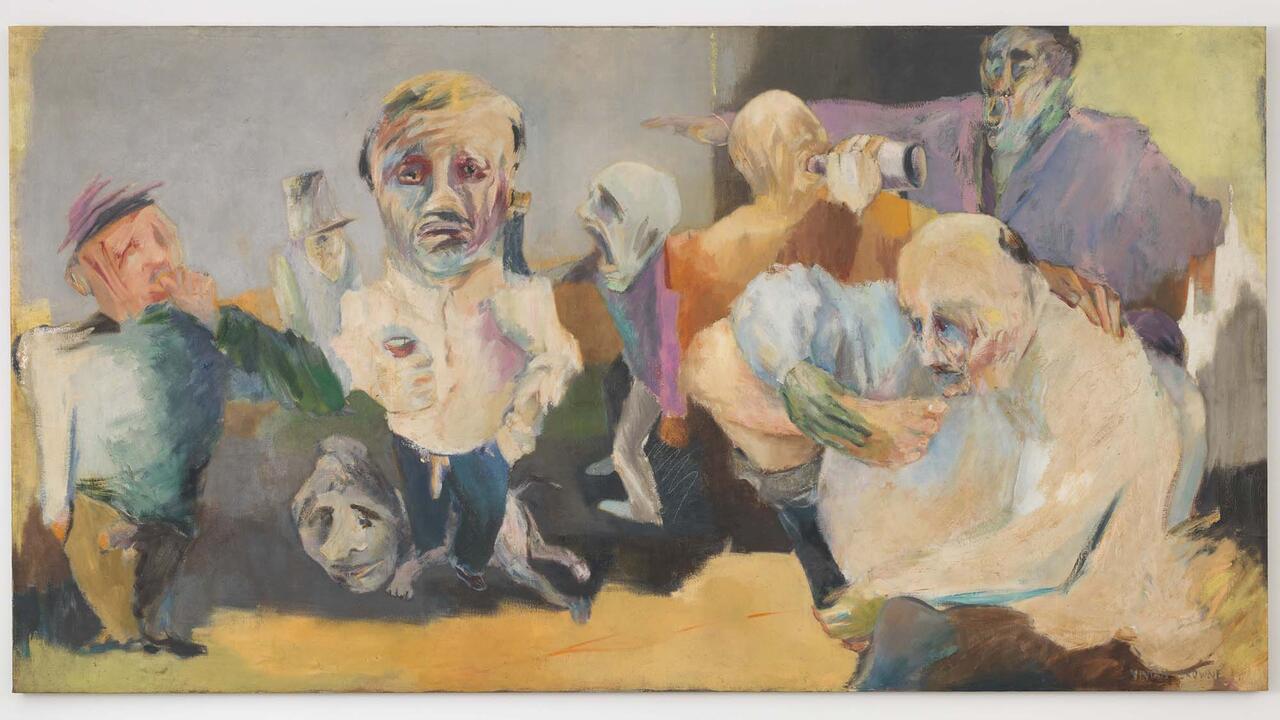Jana Sterbak
In 19th century French painting, political subject matter was routinely embraced. Contemporary French art, however, sees the artist-as-commentator as out of fashion. Direct political references are rarely made, and exhibitions of foreign artists who operate in this domain are, so often, not acknowledged until their international careers are firmly established. Into this environment comes Jana Sterbak's recent exhibition in Nantes. While her work merges the personal, emotional realm with a larger collective one, it is boldly political. Machinery, dress and furniture constructed and reconstructed by the artist are metaphors of history transformed. Often imposing, they whisper a litany of the restraints that define our lives; the real and imaginary limits to our freedom.
Sterbak likes to arouse discomfort; distress, when proffered with a smile, can arouse empathy. Seduction Couch (1987), is an electrified chaise- longe; Magic Shoes (1992), a pair of high heels tethered to chains may summon a response about women's lives and the culture of victimhood. Her latest work, Déclaration (1994), is not gender-specific, although it could be seen as being directed toward a predominantly French audience.
At the entrance to her exhibition, Sterbak issues a warning to her guests, especially those who aspire to describe and report on cultural activities. The scolding words are Milan Kundera's: 'I have always, profoundly, violently hated, those who want to find in a work of art an attitude (political, philosophical, religious, etc.) instead of looking for a way of knowing, understanding or seizing aspects of the reality of it.'
Take a seat. The two modernist straight-backed cone chairs designed in 1958 by the Dane Verner Panton, are the only ones offered. They look elegant, but are hardly inviting - you soon find out that you can't sink in, lean back, or relax. If there are newcomers to the large, oppressively empty, bright-white echo-chamber-cum-gallery-theatre, you'll have to give up your place. But then you will probably want to. Discomfort is easier when it's shared with others.
Watch and listen. In front of the chairs is a television monitor. The ten minute video is of an ordinary man, dressed in a dark suit, reading aloud the well-known 18th century text The Declaration of the Rights of Man. The revolutionary tract is perhaps the most lionised document in French, if not European, history. Commemorative celebrations were observed for its bicentennial anniversary in 1989 and it is the subject of public works of art: in a recent one at the Paris metro station Assemble Nationale, the text - on ceramic tiles - completely covers the vaulted space. The Declaration of the Rights of Man is the Hermes scarf of French speech makers, referred to in passing to add a note of elegance at any public talk. As Richard Bernstein noted, 'More, perhaps, than any other European people, they [the French] have succeeded in creating an aura around themselves, accepted both inside and outside the country. It is that France is greater than the sum of its parts. It stands for things. The Declaration of the Rights of Man is one...' While the resolve to realise the principles set forth in the individual articles of the text might be often overlooked, the fact that this esteemed document is 'home-grown' is still of the utmost importance for its reputation in France.
The recitation of this celebrated text is very purposeful: the reader is an aphasic. Some words are pronounced with excruciating difficulty, their syllables strung together with a burst of exhaled air. Other phrases are spat out at lightning speed as if to catch up with the difficult parts to come. His supreme effort, coupled with the less than perfect realisation, is the emotional confrontation of Déclaration.
There is an autobiographical element to Déclaration that could easily be overlooked. Sterbak and her family emigrated from Prague to Canada during the Soviet occupation of 1968. Declaration contains an implicit reproach to the French people for their lack of support at that time, reminding its audience of a forgotten European history. Perhaps they needed reminding: in his revealing catalogue essay, the French philosopher Yves Michaux interprets Déclaration as a comment on the way TV culture has contributed to political apathy on the North American continent. To watch is to become dumb and inactive, he suggests; ironically reinforcing Sterbak's point. His attention to the works' formal qualities rather than its content only confirms the French dislike of political art.
















